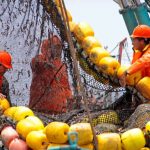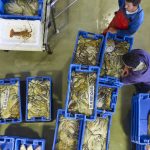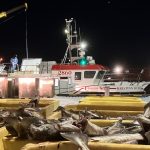Information revealed that Vietnamese pangasius producers were suggested to follow the example of Thai shrimp farmers and pay off their U.S. counterparts, money that would otherwise go to the U.S. government in the form of antidumping duties. In return, U.S. catfish farmers, like U.S. shrimp fishermen, would stop lobbying their government to erect trade barriers in the first place.
It is informed that two pangasius species, Pangasius bocourti and Pangasius hypophthalmus farmed in Vietnam and exported to the United States in increasing quantities, should legally be regarded as catfish could have far reaching repercussions. Legislation included in the U.S. Farm Bill now going through the first stages of implementation will bring catfish imported into the United States, including pangasius, under the jurisdiction of the Department of Agriculture rather than the Food and Drug Administration, as it is now.
It is expected that US decision mean that pangasius must be farmed in Vietnam using the same methods and standards employed to farm channel catfish in southeastern United States. This would effectively bar pangasius imports all together, as these conditions could not be met. The first draft of the Farm Bill will soon be published. It will be open to public comment for six months and then receive its first reading in Congress after that. If the bill does become law, then it is hard to determine how pangasius could survive in the U.S. market.
It is told that the U.S. government has imposed antidumping tariffs on seafood exports from various countries — starting with whole farmed Atlantic salmon from Norway around 20 years ago — so often that it makes one suspicious that these barriers are erected purely to protect domestic producers from competition.








